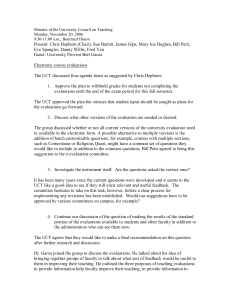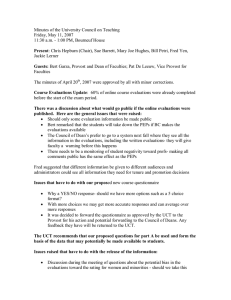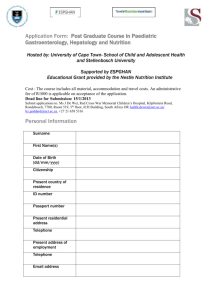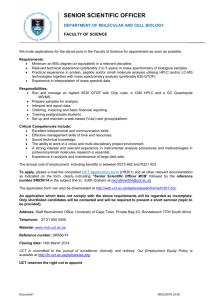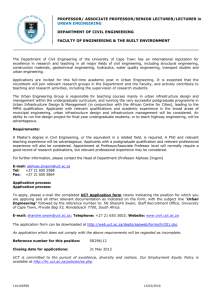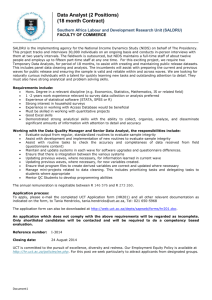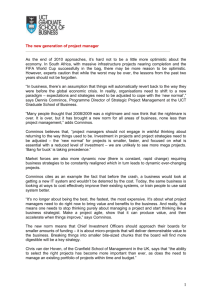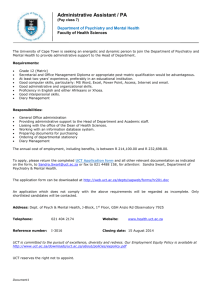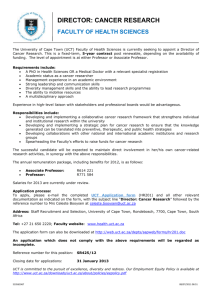University Council on Teaching (UCT) Minutes 11/18/2011 9-10:30 am., Waul House
advertisement
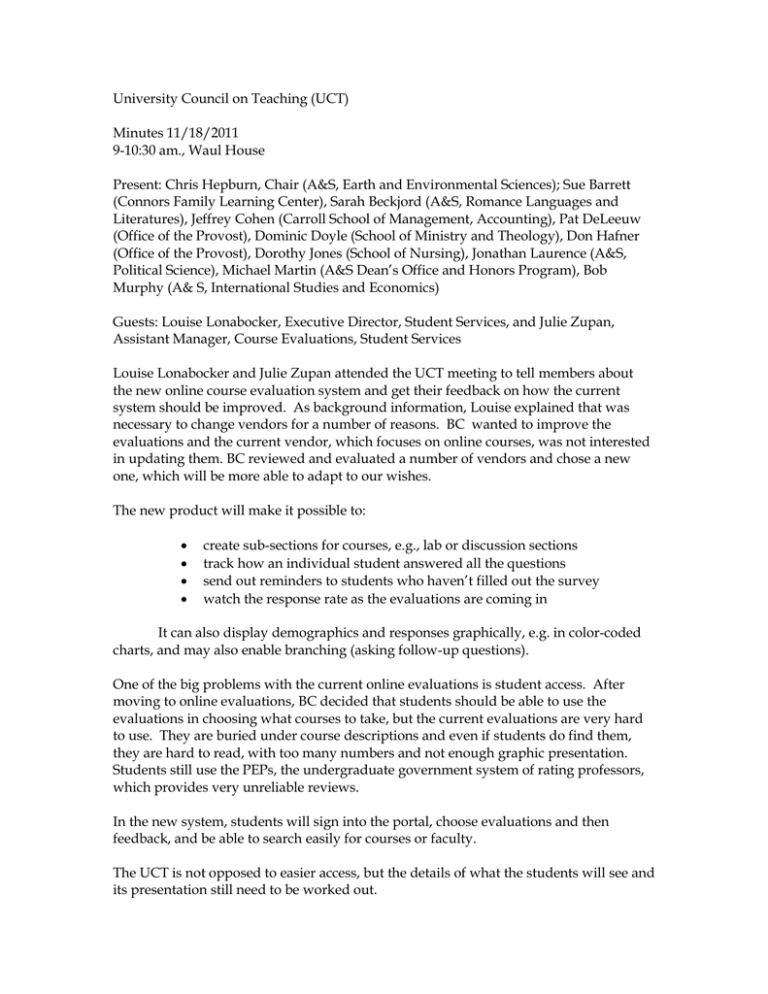
University Council on Teaching (UCT) Minutes 11/18/2011 9-10:30 am., Waul House Present: Chris Hepburn, Chair (A&S, Earth and Environmental Sciences); Sue Barrett (Connors Family Learning Center), Sarah Beckjord (A&S, Romance Languages and Literatures), Jeffrey Cohen (Carroll School of Management, Accounting), Pat DeLeeuw (Office of the Provost), Dominic Doyle (School of Ministry and Theology), Don Hafner (Office of the Provost), Dorothy Jones (School of Nursing), Jonathan Laurence (A&S, Political Science), Michael Martin (A&S Dean’s Office and Honors Program), Bob Murphy (A& S, International Studies and Economics) Guests: Louise Lonabocker, Executive Director, Student Services, and Julie Zupan, Assistant Manager, Course Evaluations, Student Services Louise Lonabocker and Julie Zupan attended the UCT meeting to tell members about the new online course evaluation system and get their feedback on how the current system should be improved. As background information, Louise explained that was necessary to change vendors for a number of reasons. BC wanted to improve the evaluations and the current vendor, which focuses on online courses, was not interested in updating them. BC reviewed and evaluated a number of vendors and chose a new one, which will be more able to adapt to our wishes. The new product will make it possible to: create sub-sections for courses, e.g., lab or discussion sections track how an individual student answered all the questions send out reminders to students who haven’t filled out the survey watch the response rate as the evaluations are coming in It can also display demographics and responses graphically, e.g. in color-coded charts, and may also enable branching (asking follow-up questions). One of the big problems with the current online evaluations is student access. After moving to online evaluations, BC decided that students should be able to use the evaluations in choosing what courses to take, but the current evaluations are very hard to use. They are buried under course descriptions and even if students do find them, they are hard to read, with too many numbers and not enough graphic presentation. Students still use the PEPs, the undergraduate government system of rating professors, which provides very unreliable reviews. In the new system, students will sign into the portal, choose evaluations and then feedback, and be able to search easily for courses or faculty. The UCT is not opposed to easier access, but the details of what the students will see and its presentation still need to be worked out. The UCT wanted to know about the possibility of making the comments, as well as the questionnaire answers, public. Louise pointed out that no other schools do this and that it would require extensive vetting for offensive or libelous comments. It may, however, be possible for faculty to release the comments after viewing them. The UCT also wanted to know if it would be possible to ask students what grade they expect in the course. This raises issues about anonymity, especially in small classes, but would be useful in understanding student ratings. There will definitely be more flexibility in the customized questions. BC can decide and define the types of questions faculty can add and Louise and Julie asked for feedback on how many and what sorts of questions should be made available. There are three basic question types: open-ended, agreement scale and poor to excellent scale. BC needs to tell the vendor how many of each type and a maximum number of questions we would like, and then the faculty can use as many as they choose within those parameters. (Currently only about 100 faculty add custom questions every semester. ) After some discussion, the UCT recommended that faculty be invited to use four of each type of question, but limit their total questions to 6. Chris Hepburn reported that the TAME grant proposals had been reviewed and that all were approved. The UCT received a larger than usual number of proposals this year. An email reminder about the upcoming TAM grant deadline will be sent shortly, noting that the committee will privilege interdisciplinary proposals. As a possible future agenda item, the UCT discussed whether faculty could receive reports comparing their grade distribution to those of other faculty. Some BC schools already do distribute such reports, which could be useful tools against grade inflation. The next meeting is scheduled for December 13th, 12:00 to 1:30.
